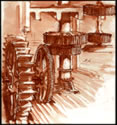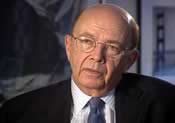R ustbelt Phoenix: Saving the American Steel Industry tells the dramatic story of how the United Steelworkers, faced with the bankruptcy of two of its largest employers, LTV and Bethlehem, found someone to buy the companies to save jobs and keep the industry from moving abroad. That new owner turned out to be Wilbur Ross, a major private equity investor.
The Steelworkers and the new company Ross formed, the International Steel Group (ISG), agreed that the old companies were mismanaged and had far too many middle managers. The union agreed to more layoffs, but layoffs of managers as well as workers, and to major changes in work rules. In return, ISG maintained wages, provided benefits to retirees, and gave the union a major role in decisions from the shop floor to top management. The success of the partnership attracted a new buyer just two years later. Now the former LTV, Bethlehem, and several other American steel companies are part of Mittal Steel, the world’s largest steel company. In return for improvements in its contract, the union agreed to the sale.
The story of saving a large part of the American steel industry is told through interviews with the major participants on the management and labor side. In addition, Rustbelt Phoenix includes an area committee meeting at Mittal’s giant steel plant at Sparrows Point, Maryland, as did in our previous video, Partners: Bethlehem Steel and the United Steelworkers. The changes in 10 years are startling. A decade ago, management listened to labor complaints; now the workers run the meeting and initiate cost savings and quality improvements.
Rustbelt Phoenix comes with closed captions in English in NTSC VHS and optional English subtitles in NTSC and PAL DVD. Some of the people we interview speak with regional American accents. We recommend the use of this feature for those who speak global English and others who might find it helpful.
"Rustbelt Phoenix is an important film that provides a glimpse into a bold experiment which could serve as the model for the future of labor-management relations in the American steel industry and beyond. It should be compulsory viewing in labor education and industrial relations courses."
--Paul Clark, Department of Labor Studies and Industrial Relations, Penn State University
"The story is gripping, the scenes engaging, and the ideas empowering. This film should be seen by all trade unionists, every management team member, and every high schooler and college student in the country."
--Art Shostak, Professor Emeritus of Sociology, Drexel University
"Rustbelt Phoenix brings to life what's at stake and what is possible in efforts to revitalize America's mature manufacturing industries. By working together in sensible ways, labor and management created a new American steel industry out of the ashes of the old. Telling the story in the words of the people who made it happen brings to life the personal drama and the enormous stakes for the families and investors in ways that no words on paper could ever do."
--Thomas A. Kochan, Bunker Professor of Work and Employment Relations, MIT Sloan School of Management
"This film is an excellent teaching tool for anyone concerned about the fate of manufacturing in North America. The Rustbelt revival is due in no small measure to the efforts of thousands of rank and file steelworkers who, when given the chance to take responsibility for their plants, are more than able to figure out how to make steel that competes well on the global market."
--William Kornblum, Professor of Sociology, City University of New York
Merrimack Films
530 Concord Ave.
Belmont, MA 02478
USA
1-617-489-4729
Email: sales@merrimack-films.com




